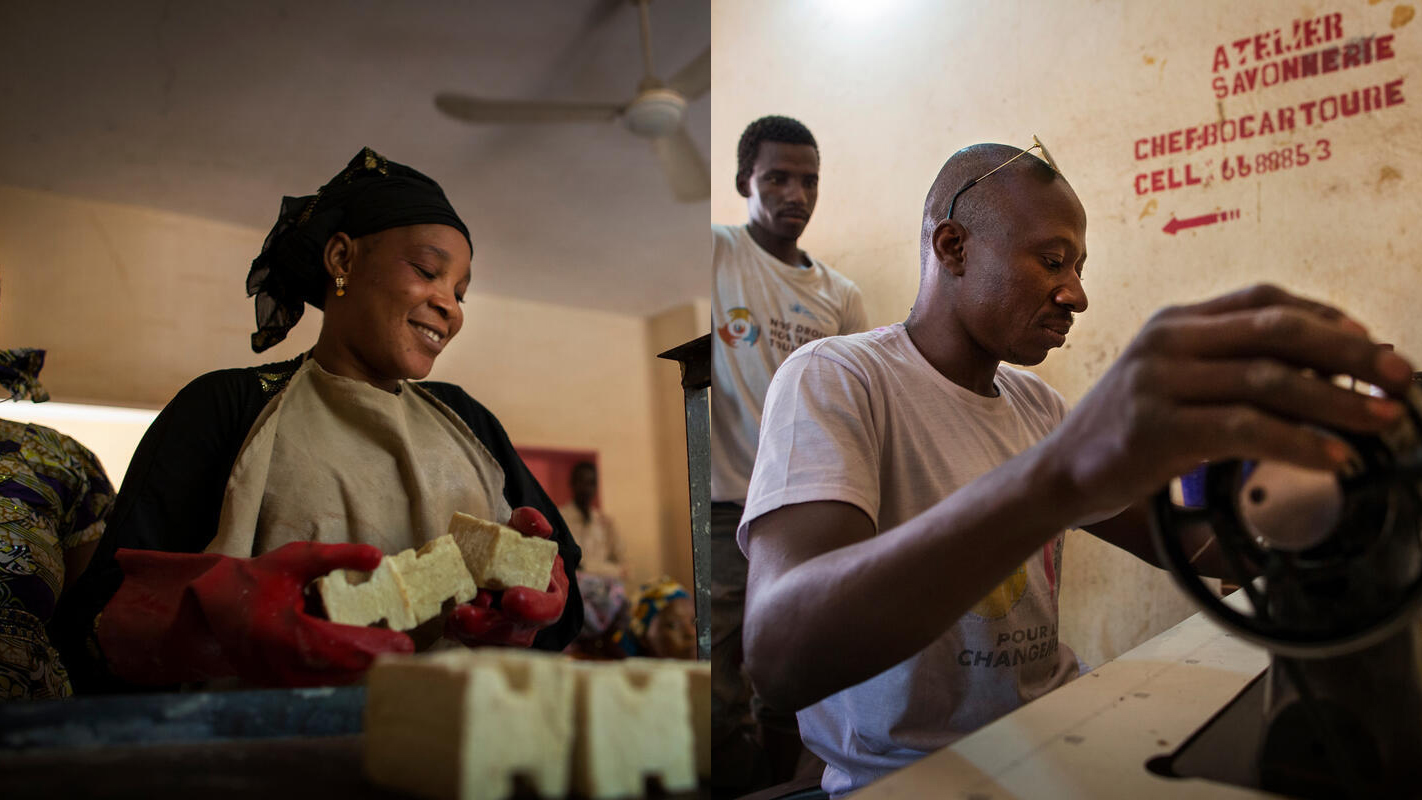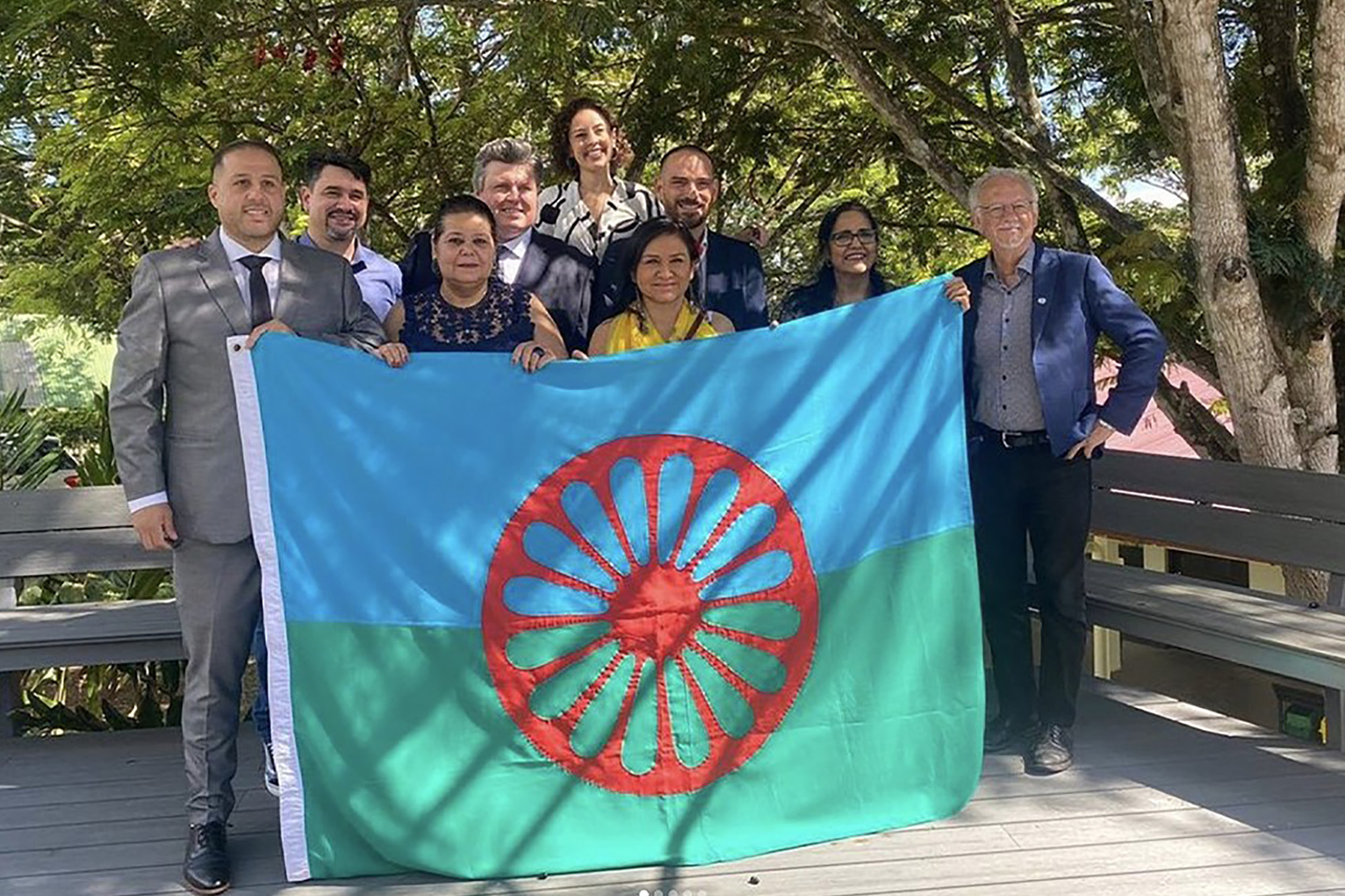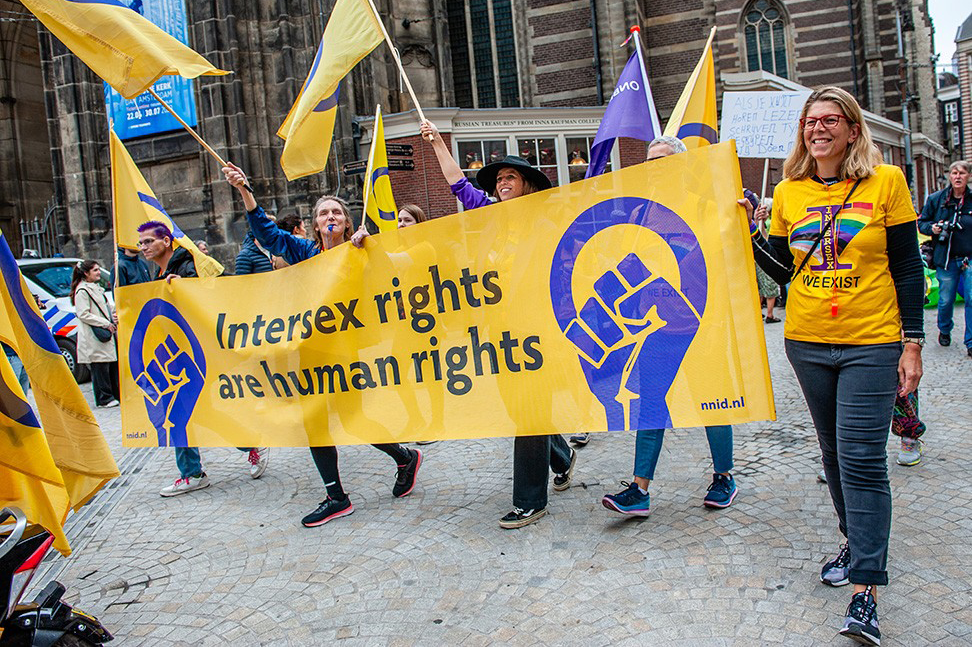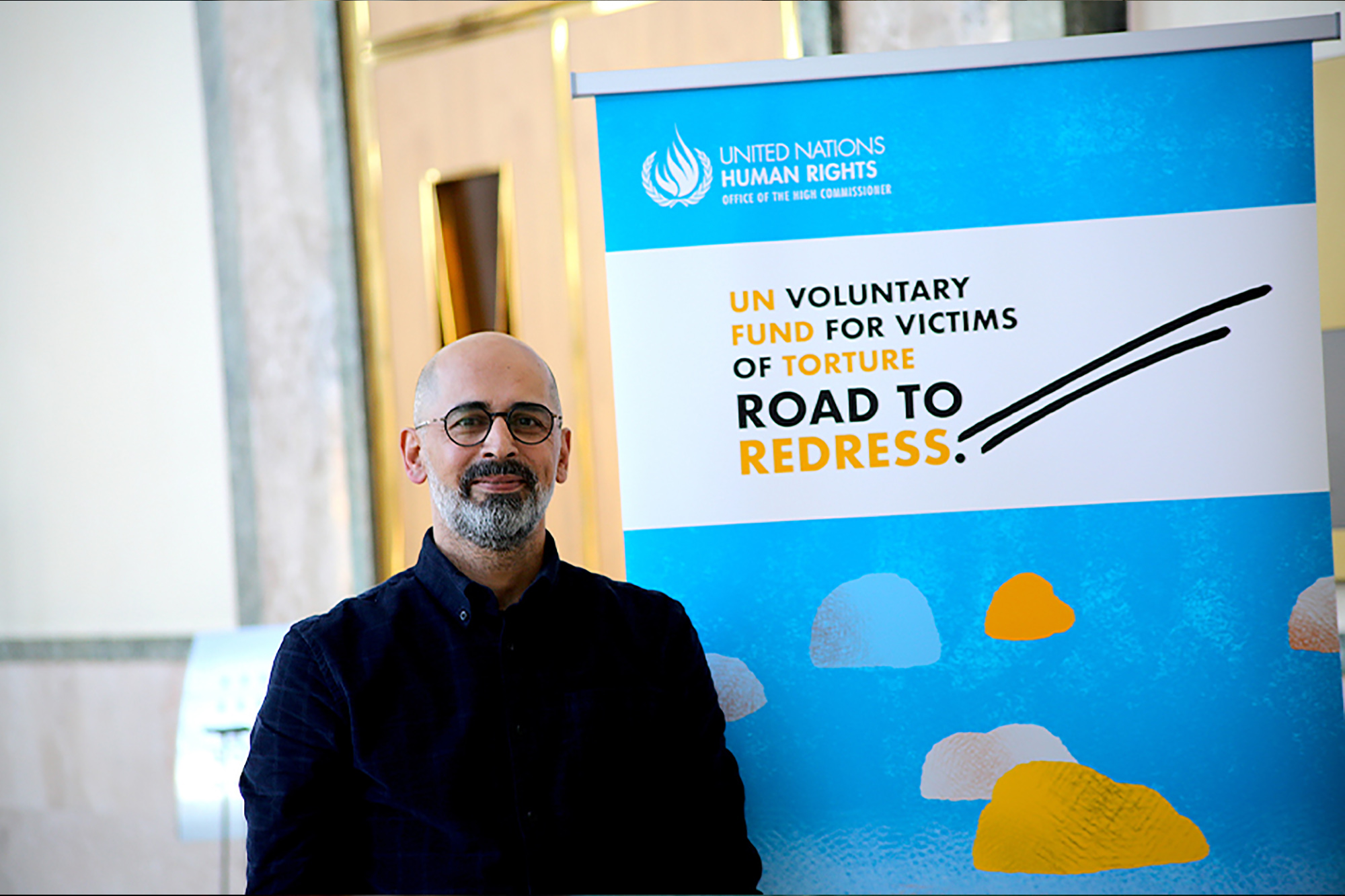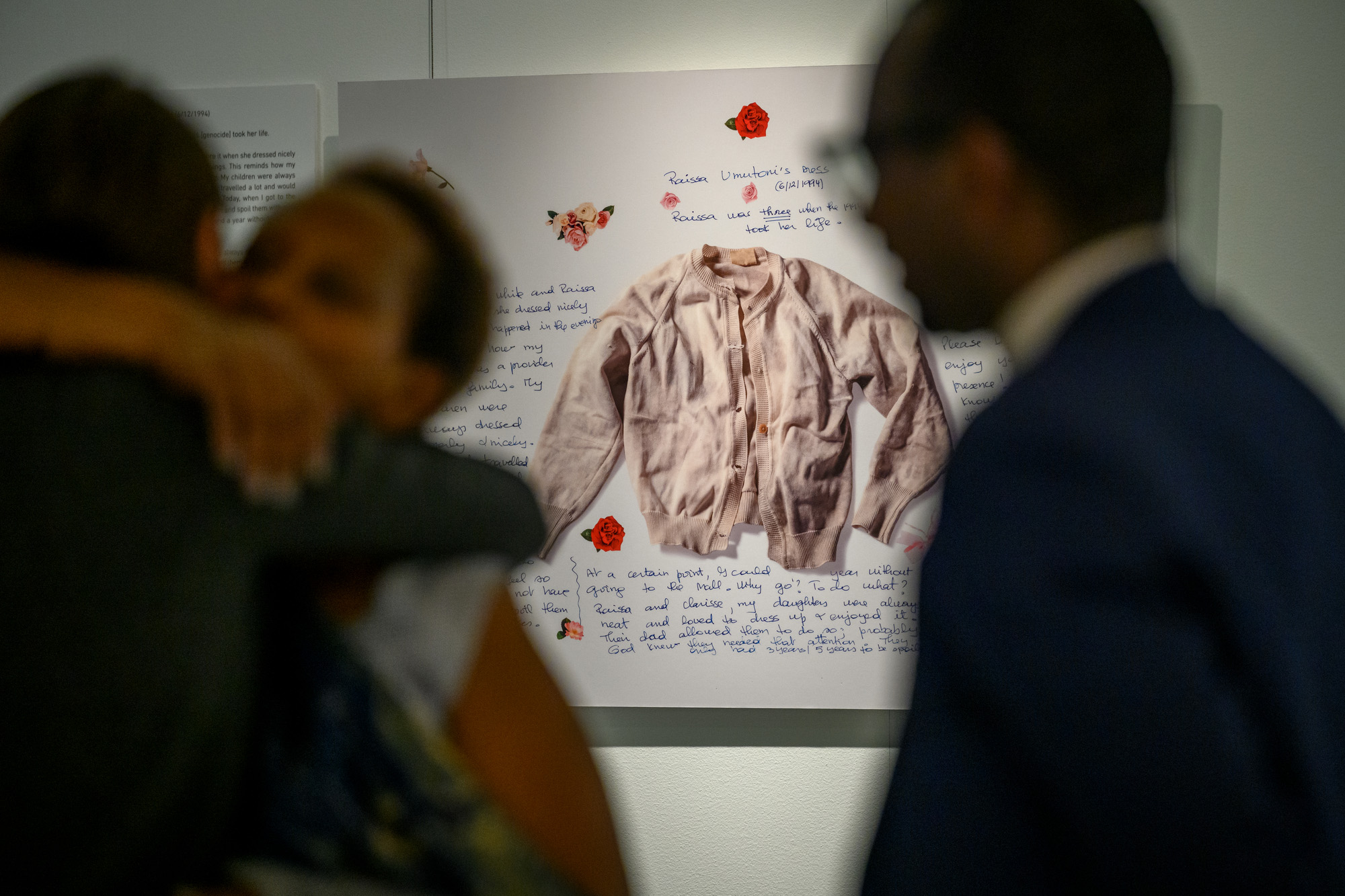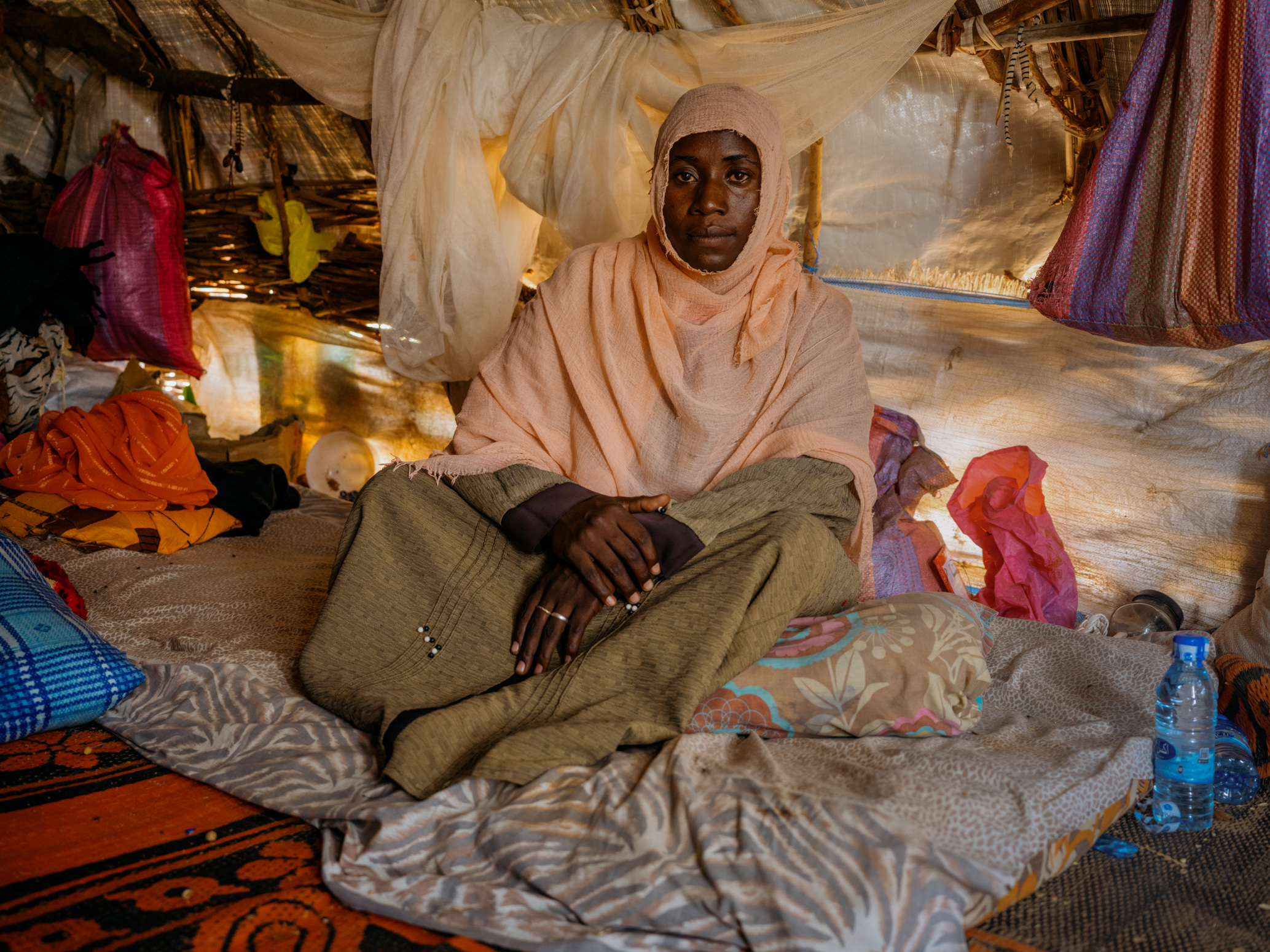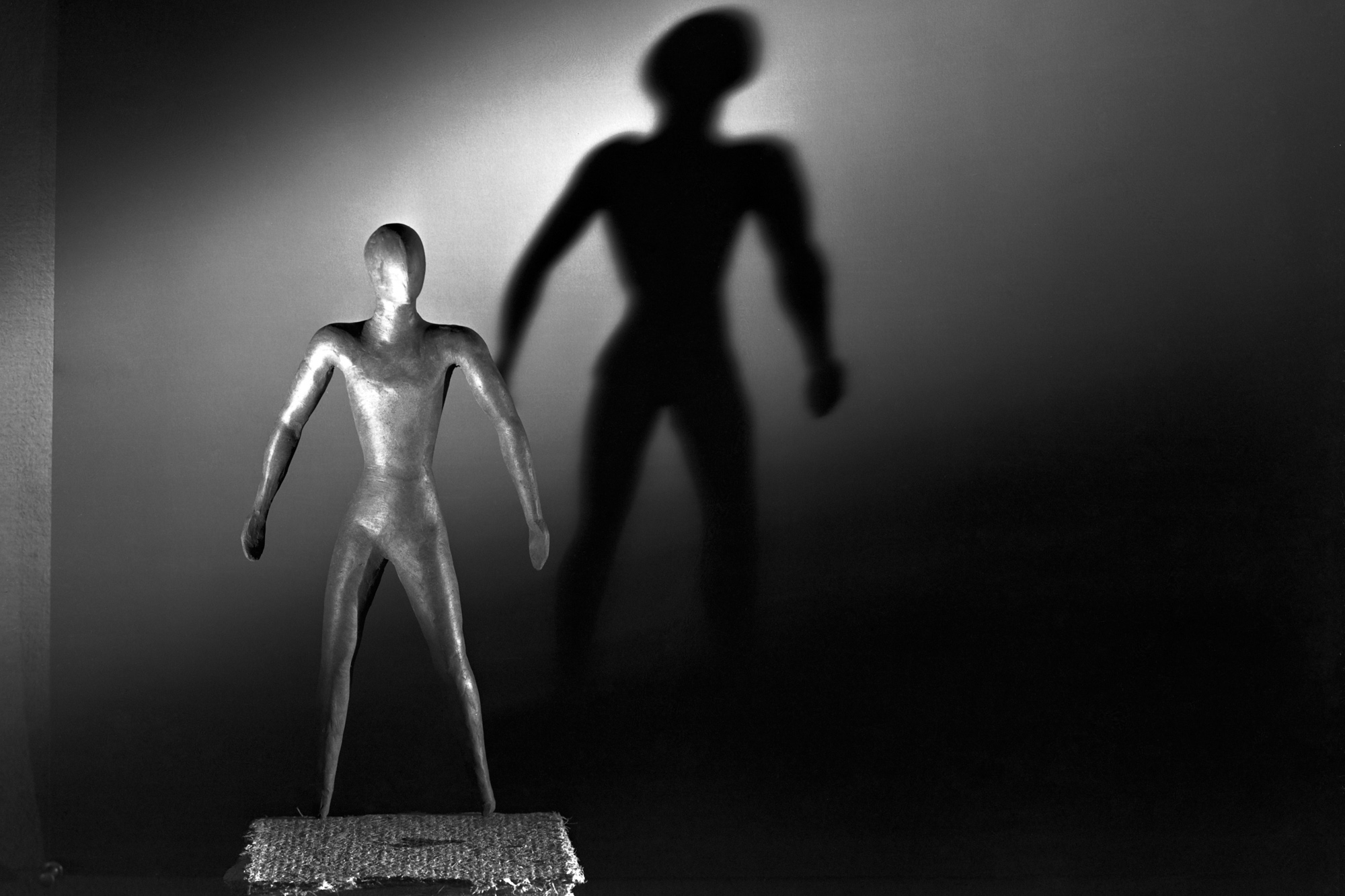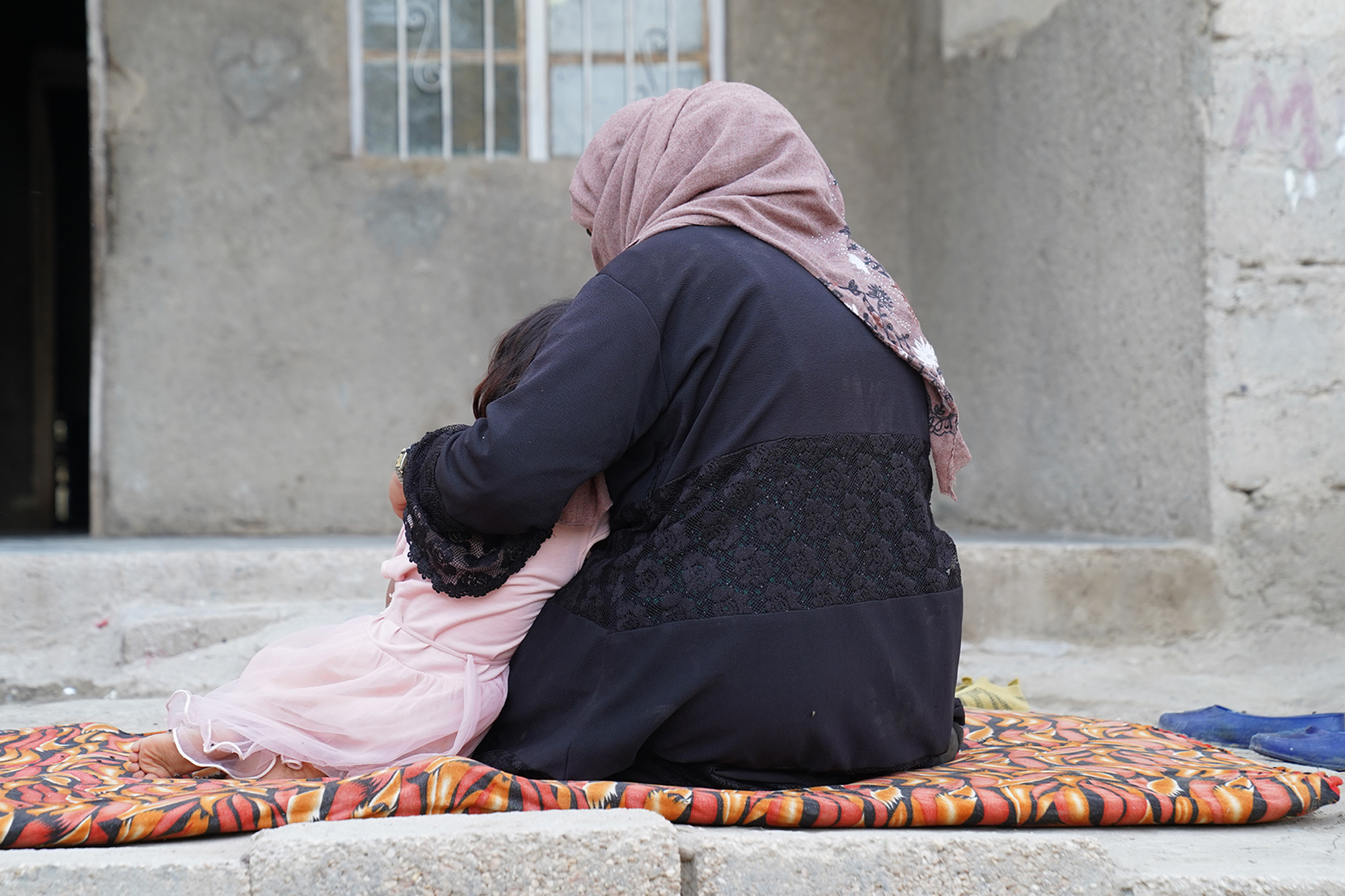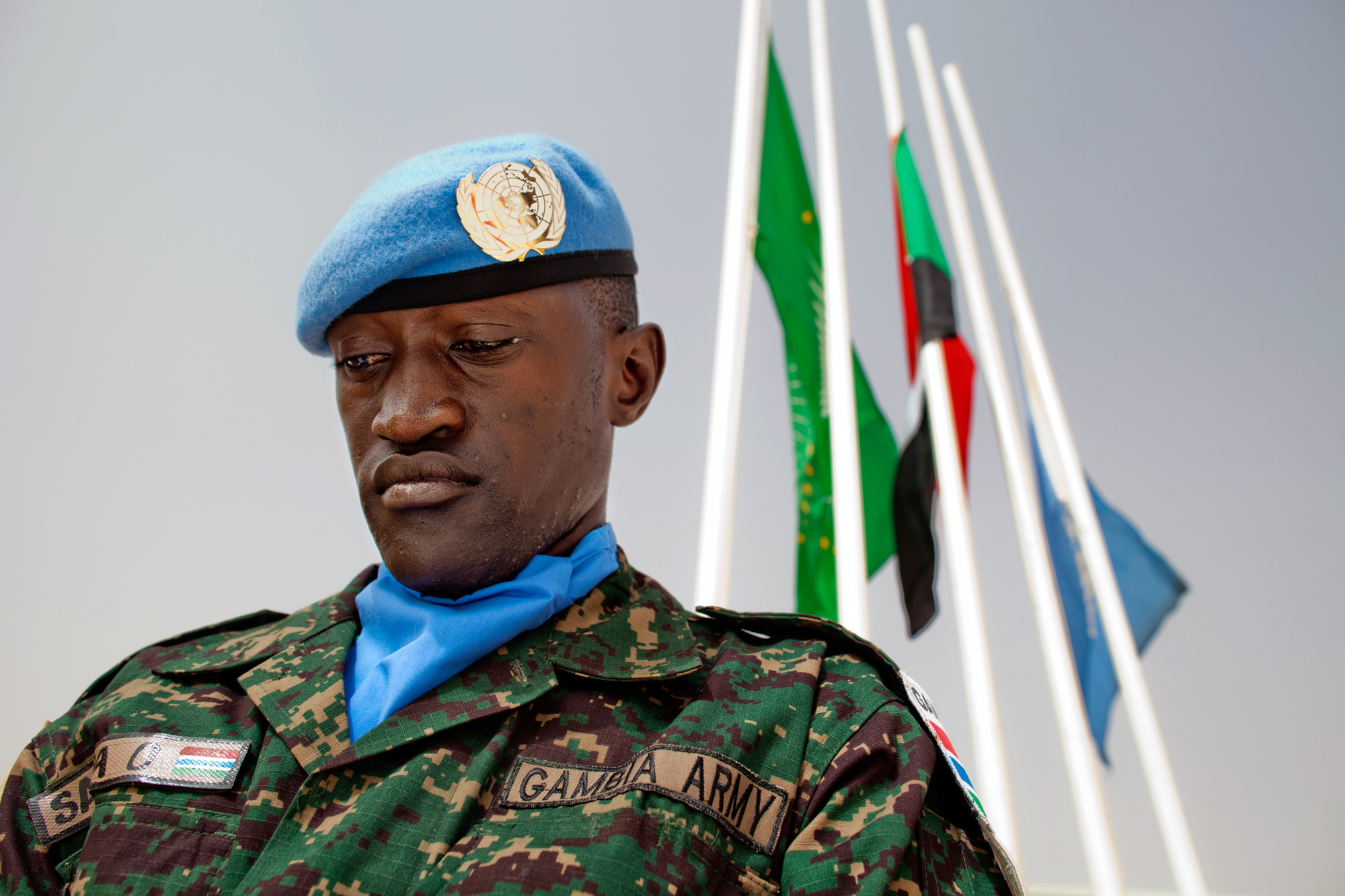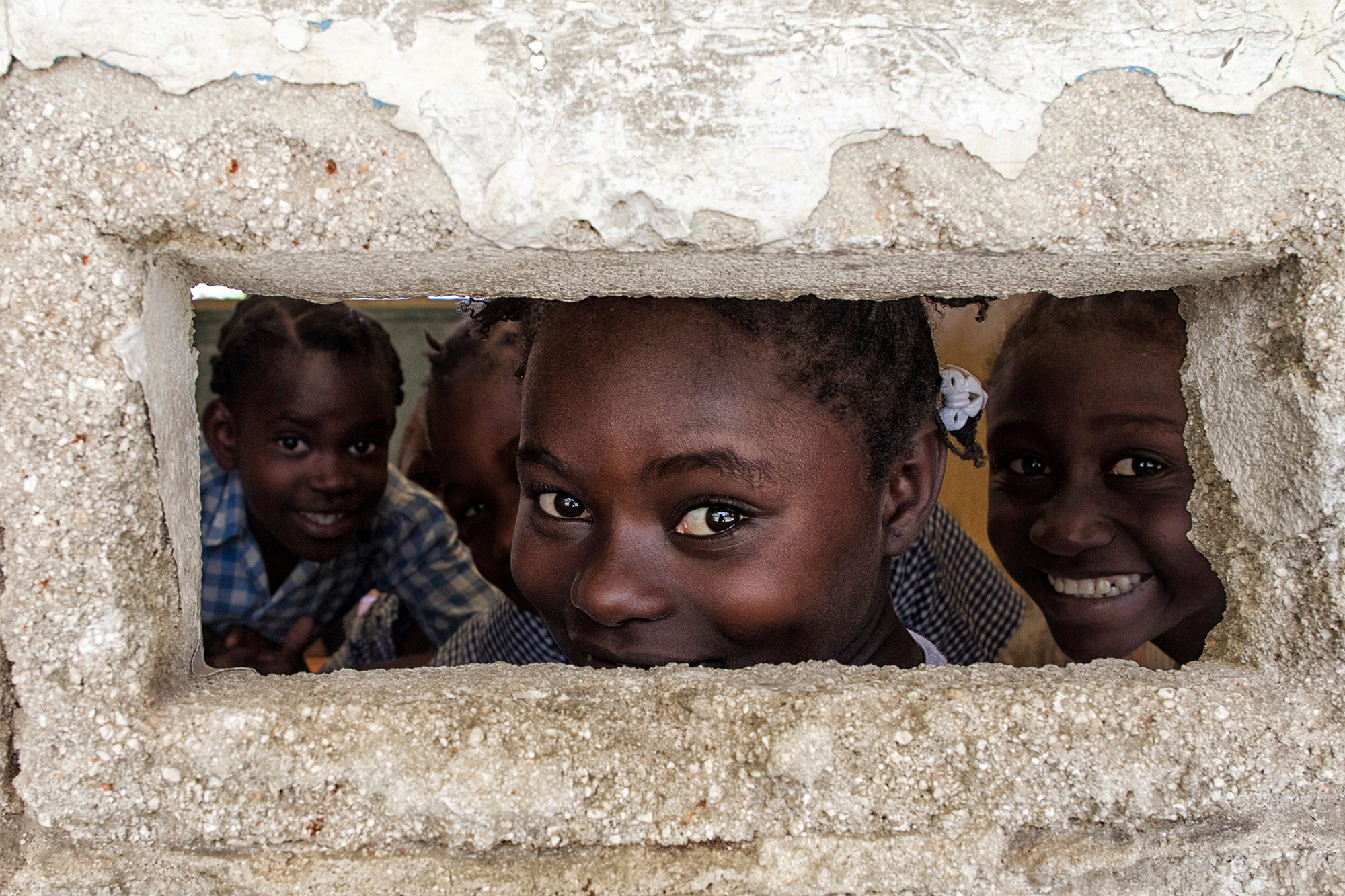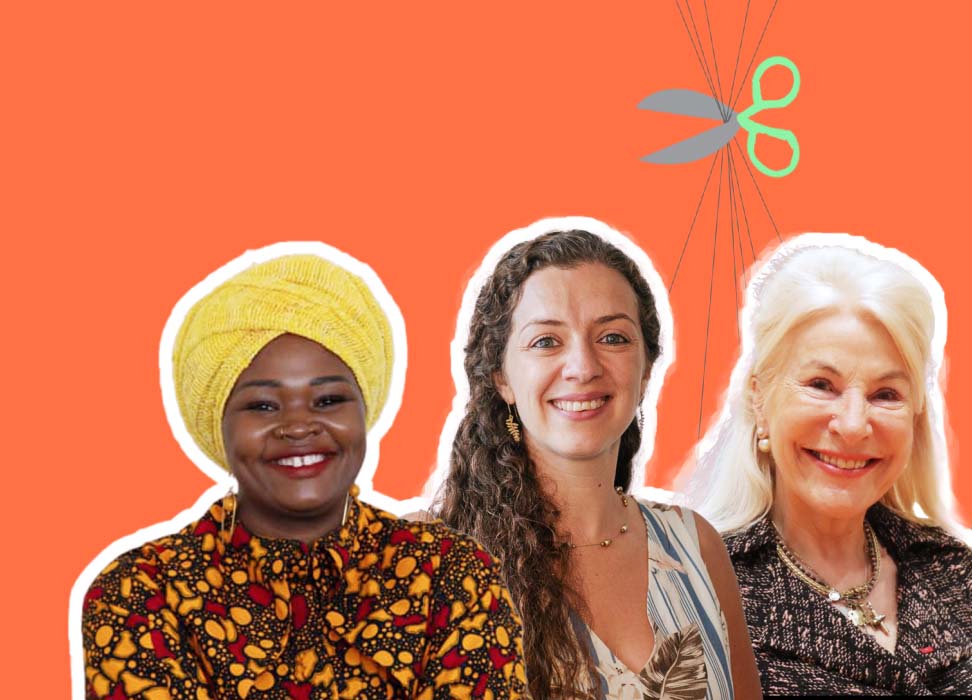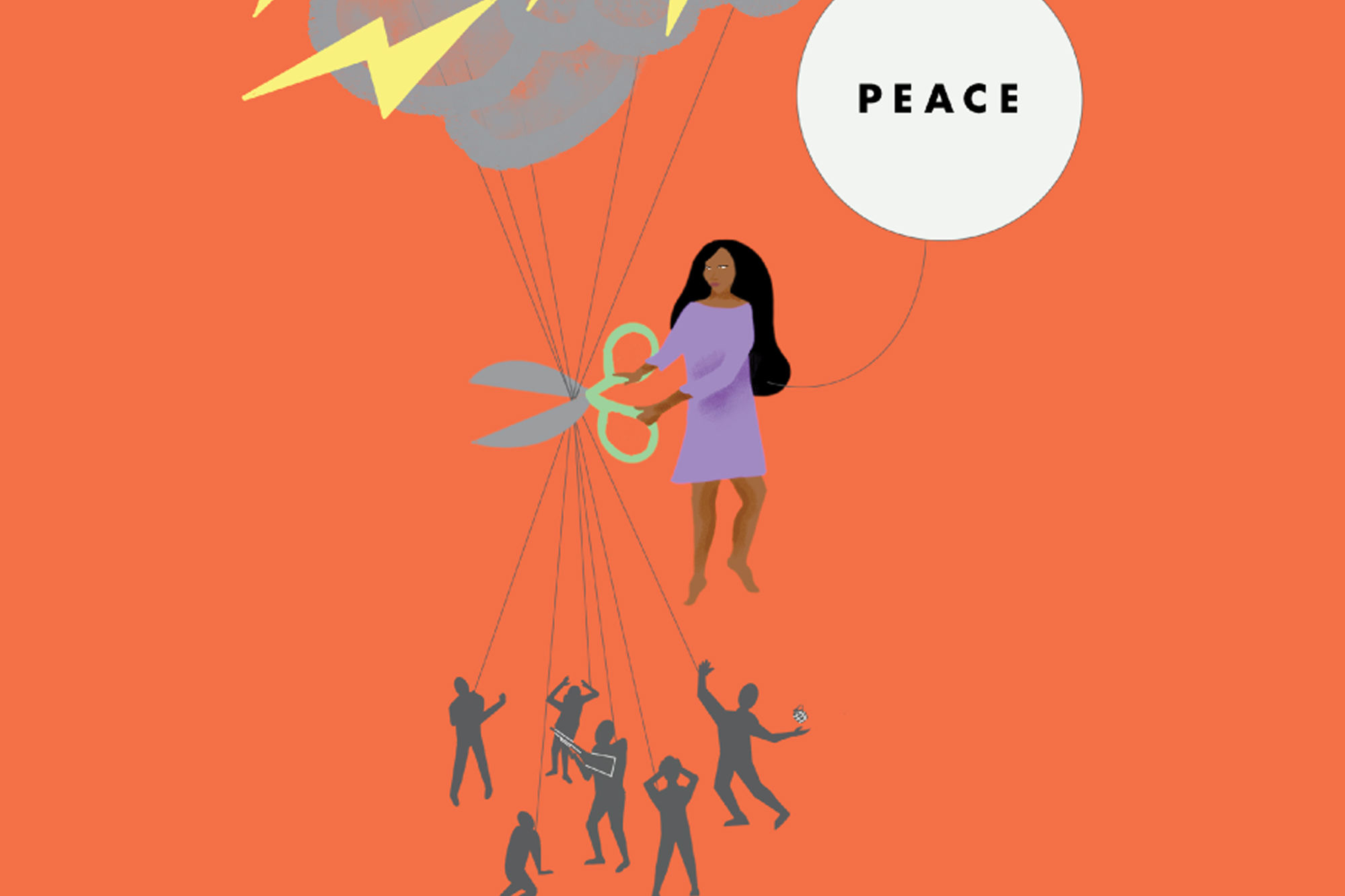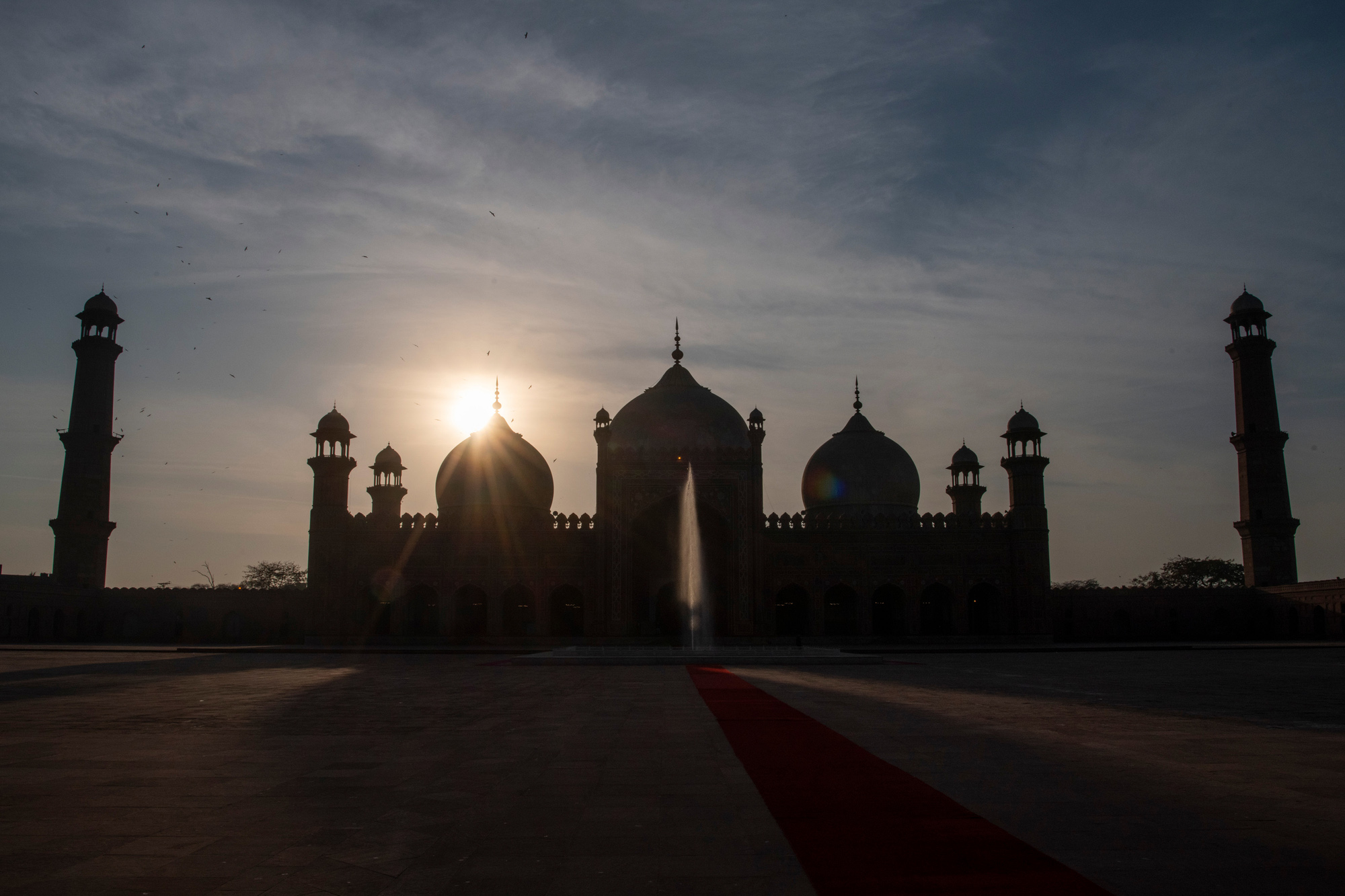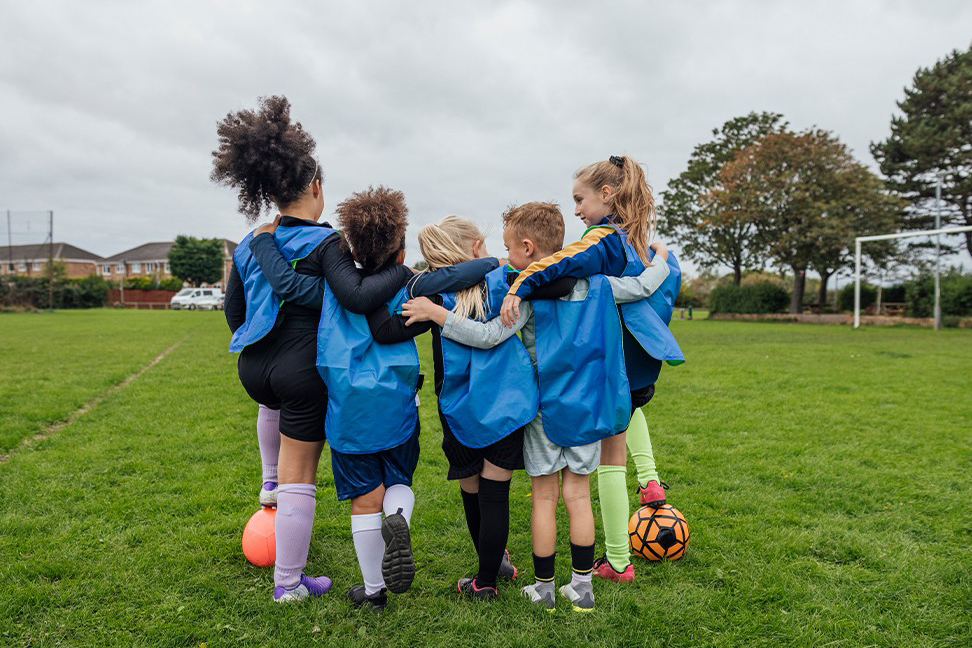Find out more in
The Romani Memory Map for the Americas is a crowd-sourced initiative to recognize and honour sites of memory of the Romani community, from the United States to Argentina. Coordinated by UN Human Rights (OHCHR), it aims to strengthen Roma rights and inclusion, advance public memory of Roma people and history, and combat anti-gypsyism. The project was launched on International Roma Day and aims to advance recognition of past violations of the human rights of Roma and their impact on the present in the Americas. Miklos, a Romani from Brazil, said memorialization is key to combat anti-gypsyism.
The UN Human Rights Council's historic resolution marks a pivotal step towards protecting the rights and dignity of intersex individuals worldwide, addressing discrimination, violence, and harmful practices.
Riyad Avlar, a survivor of torture and sexual violence in Syrian detention centers, found healing through theater after his release. “I never imagined that one day I would get on a stage, but when I did I felt for the first time a big healing,” said Avlar, who heads a survivor-led organization in Türkiye for former detainees. He shared his experience at a workshop organized by the UN Voluntary Fund for Victims of Torture, which supports over 50,000 survivors annually. However, due to a funding gap, the Fund was unable to help 12,000 torture survivors last year. The Fund provides psychological, medical, social, legal, and humanitarian aid to survivors and their families.
2024 marks the 30th anniversary of the genocide in Rwanda, one of the darkest chapters in human history. In less than three months, one million Tutsi children, women and men were killed by their fellow Rwandans. On this day, we honour those who were murdered and reflect on the suffering of those who survived. “Let’s ensure that the acts that began on April 7, 1994, are never forgotten – and never repeated”, says the UN Secretary-General in his message for the observance. The UN will commemorate the anniversary with events in Geneva, Paris and New York.
Mines, explosive remnants of war, and improvised explosive devices continue to cause death and injury. On average, one person is killed or injured every hour. Many of the victims are children. Survivors of explosive hazards with disabilities, and all people with disabilities living through conflicts, are the focus of the 2024 commemoration of the International Day for Mine Awareness and Assistance in Mine Action (4 April). Join the global effort to raise awareness and advocate for the needs and rights of all people with disabilities in conflict and peacebuilding settings.
The Universal Declaration of Human Rights highlights the significance of upholding human rights, freedom, equality, and dignity for all individuals, acknowledging past atrocities due to their neglect. The UN stresses the importance of fostering a culture of peace, based on values such as freedom and justice, to prevent conflicts and ensure the full exercise of rights. To align with this goal, the General Assembly designated April 5 as the International Day of Conscience, urging all stakeholders to actively contribute to promoting peace through education, awareness-raising campaigns, and sustainable development initiatives.
The horrific atrocities committed by the Islamic State of Iraq and the Levant (ISIL) when it invaded Syria and Iraq in 2014 shocked the world. Thousands of Iraqi women were left to bring up children alone, separated from families, and living in poverty in displacement or refugee sites. By working closely with the government, the United Nations Development Programme (UNDP) has prepared communities in Anbar, Ninewa, Salah al-Din, and Kirkuk to accept 9,000 ISIL-affiliated families back into their societies.
On the International Day of Solidarity with Detained and Missing Staff Members (25 March), we pay tribute to the brave men and women who have lost their lives in the service of the United Nations. To protect UN staff, the UN General Assembly adopted the Convention on the Safety of United Nations and Associated personnel on 9 December 1994. UN Secretary-General António Guterres has called on all countries to fully implement the 1994 Convention and its 2005 Optional Protocol. Since 2022, 381 UN personnel have been detained. In total, 27 UN personnel are still in detention.
The transatlantic trade in enslaved Africans represents one of the most horrific eras in human history. For four hundred years, enslaved Africans fought for their freedom, while colonial powers and others committed horrific crimes against them. On the International Day of Remembrance of the Victims of Slavery and the Transatlantic Slave Trade (25 March), the United Nations honors the millions of Africans who were trafficked and enslaved. To mark the occasion, the General Assembly will hold a meeting and the UN Outreach Programme will host two new exhibits highlighting the horrors of slavery.
This year’s International Day for the Elimination of Racial Discrimination (21 March) honors "A Decade of Recognition, Justice, and Development: Implementation of the International Decade for People of African Descent." The observance is linked to the International Decade for People of African Descent, which recognizes that people of African descent are a distinct group whose human rights must be promoted and protected. Approximately 200 million people identifying themselves as being of African descent live in the Americas, and many millions more live in other parts of the world.
“Every day a woman's right is abused,” said Riya William Yuyada, who fled South Sudan when she was a baby, but decided to return more than 20 years later to create a women’s movement for peace, Crown the Woman. “When women are part of peace, it is more sustainable.”
Across the world, women and girls are leading the fight for peace and equality. Yet despite their essential role in peacebuilding, women human rights defenders still face challenges when it comes to getting a seat at the tables of power. This episode of the UN Human Rights Podcast explores how women are trying to bring peace to conflicts around the world, with grassroots activist Riya William Yuyada, Laila Alodaat, Deputy Secretary General at the Women’s International League for Peace and Freedom, and Nicole Ameline, former chair of the U.N. Committee on the Elimination of Discrimination Against Women.
Three women human rights defenders and peacebuilders were honored by the UN Human Rights on International Women's Day. William Yuyada, Laila Alodaat, and Sara are supporting women and girls in their efforts for peace and have been working tirelessly to assist victims and their families and communities, identify the needs of women and marginalized groups, and much more. Their work is crucial in conflict settings, especially when women's voices are silenced or ignored.
The International Day to Combat Islamophobia (15 March) is happening at a time when anti-Muslim hate and bigotry are on the rise globally, warns the UN Secretary-General. This trend is part of a wider pattern of attacks against religious groups and vulnerable populations. We need to confront and root out all forms of bigotry, condemn inflammatory discourse, safeguard religious freedom, moderate hateful content on digital platforms, and combat intolerance and stereotypes. Let's promote mutual respect and understanding, foster social cohesion, and build peaceful and inclusive societies for all.
Mary Harvey, Chief Executive of the Centre for Sports and Human Rights, highlights the intrinsic connection between sports and human rights values when sport is healthy and vibrant. With her extensive background as a former athlete on the USA women’s football team and her involvement in bringing the FIFA World Cup to North America in 2026, Harvey brings a unique perspective to the discussion.
“If we are trying to make human rights something that is more every day, sport provides that, that connection to people in an everyday way,” she said.
In an episode of the UN Human Rights Podcast, Harvey delves into the significance of sports in making human rights more accessible to people on a daily basis.
She emphasizes the power of sports as a platform for educating individuals about human rights in a relatable and everyday manner.
“It is a wonderful way to educate people about human rights and that makes it very relevant for everyone.” she concludes.
Photo: © Getty

